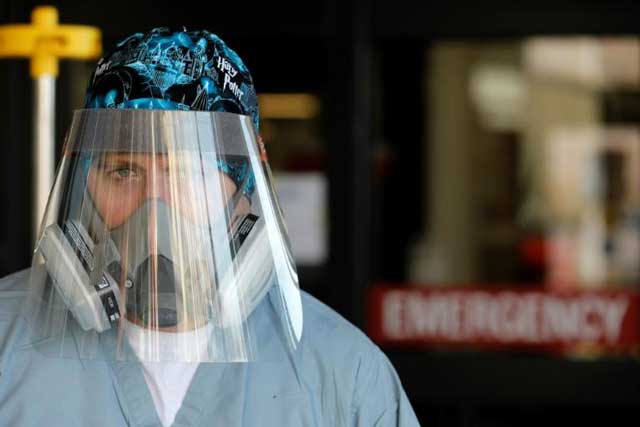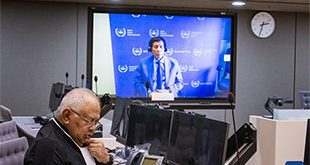
Toronto, Canada | AFP | At the height of the COVID-19 pandemic, Canadian nurse Nikki Hillis-Walters was asked to choose between her two healthcare jobs — one in Canada, and one in the United States.
She picked the latter, telling AFP: “It just felt like I was needed there.”
She and 2,000 other healthcare professionals live in Windsor, Ontario but work in hospitals across the border in Detroit, Michigan.
Dozens like her, with split work in both jurisdictions, were similarly pressured by employers to quit one job to focus on the other.
Canadian hospital administrators feared they might pick up the coronavirus in the United States — where the pandemic has hit hardest — and pass it to patients or others in this country.
Hillis-Walters until recently had worked weekdays in Canada and weekends in the United States, but decided to stay in the intensive care unit at Beaumont Hospital in Grosse Pointe, just east of Detroit.
The hospital was overwhelmed with COVID-19 cases and needed her most.
“It was already pretty bad,” said the 38-year-old nurse. “We already had a lot of staff getting sick, a lot of patients coming in.”
The ultimatum given to healthcare workers has been criticized by some as an ineffective way of containing the virus, while creating financial hardships for frontline workers with split jobs facing a loss of income.
It’s not about “picking sides,” said Hillis-Walters, whose husband is American.
Her efforts to “get people better” and contain infections in the United States helps prevent the spread of the coronavirus, she explained.
“It just felt like it was the best thing to do for both countries,” she said.
It’s a short commute across the Detroit River that separates the two cities.
Canadians nurses are drawn to higher wages and greater opportunities in Detroit — with its population of roughly four million being 10 times that of its sister city.
– ‘Border an imaginary line’ –
The Canada-US border was ordered closed to all non-essential travel in March.
Canadian healthcare workers, who are exempt from the travel restriction, are today at the forefront of the fight against the coronavirus in the United States where 80,000 people have died from COVID-19, making it the most infected country in the world.
With just over 4,000 coronavirus fatalities, Michigan alone has almost the same number as all of Canada.
But in early April healthcare professionals with one foot on both sides of the longest border in the world, at 8,900 kilometers (5,500 miles), found themselves unwittingly caught in the middle of diplomat spat between Ottawa and Washington.
The spat was triggered when President Donald Trump ordered American N95 masks supplier 3M not to ship them abroad. The company is a major supplier of the medical masks to Canada and South America.
The dispute was quickly settled but the damage was done — Trump’s protectionist stance outraged Canadian officials, including Prime Minister Justin Trudeau, who reminded that several Detroit hospitals relied on their Canadian staff.
Although dismayed by Trump’s actions, Windsor mayor Drew Dilkens has continued to campaign for crossborder cooperation in the pandemic fight.
“It’s hard to turn your back on your neighbors at the time when there’s a deep crisis,” he told AFP.
“People in my community just consider Detroit to be an extension of their backyard. The border for us is just an imaginary line,” he said.
And if the roles were reversed, he added, “I know for a fact that… the city of Detroit would be there for us if we needed them.”
“This isn’t really the time to cause (a) divide between our two countries,” commented Steve Homick, a Canadian who works in the emergency room of another Detroit-area Beaumont hospital.
Currently living through the most intense weeks of his career, the 30-year-old nurse points to the friendly greetings he gets from American customs officials each time he drives from Windsor through a now almost empty tunnel to Detroit for work.
“A lot of the times they say ‘Thank you for your service,’ which isn’t really necessary (because) it’s my job, but they’re very appreciative that you’re coming across to help,” he said.
 The Independent Uganda: You get the Truth we Pay the Price
The Independent Uganda: You get the Truth we Pay the Price


